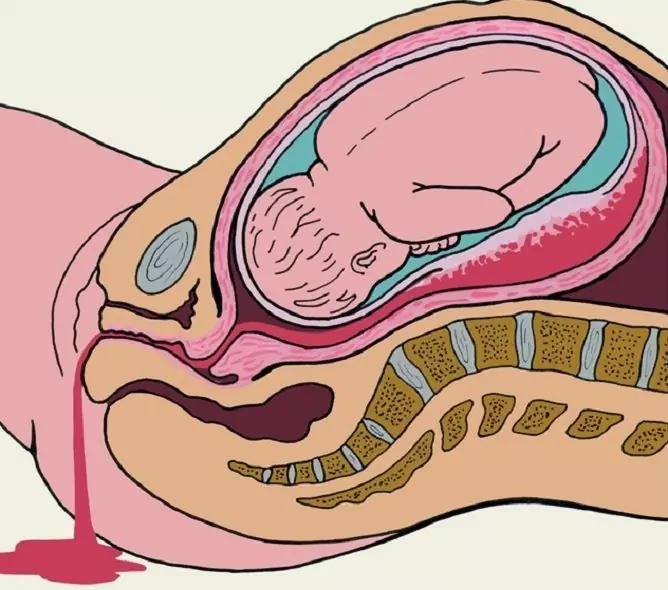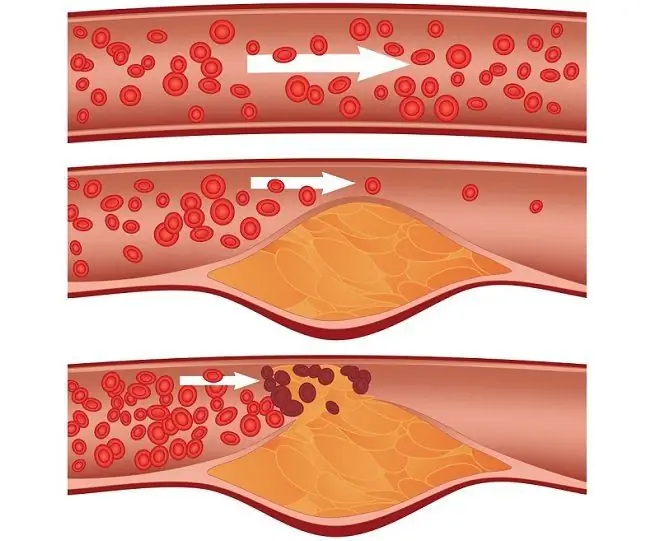- Author Rachel Wainwright wainwright@abchealthonline.com.
- Public 2023-12-15 07:39.
- Last modified 2025-11-02 20:14.
Amnesia

Amnesia is a disease associated with partial or complete memory loss, both spontaneous and temporary, as well as prolonged and permanent type. The memory can return in chronological order or according to the principle of the most vivid memories.
Amnesia causes and symptoms
The causes of amnesia are of two main types - organic and psychological. Organic causes are associated with injuries, diseases of the brain and nervous system, alcoholism, drug addiction, as well as with the action of antidepressants, hypnotics and psychotropic substances.
Psychological causes of the disease are psychogenic in nature and are usually associated with mental trauma and stress.
The causes of amnesia can be craniocerebral trauma, encephalitis, stroke and intoxication, as well as suffocation, poisoning with poisonous gases, ischemia and hypoxia.
If the disease is gradually growing, then it may be associated with pathological disorders and degenerative processes in the brain, the development of tumors and the manifestation of mental illness. Short-term memory loss often occurs due to cerebrovascular accidents, epileptic seizures and acute migraines.
Amnesia can have both independent symptoms and combined with other diseases. Symptoms of amnesia are usually sudden or gradual loss of memory, confusion, lack of coordination, loss of orientation in time and space, and inability to recognize people. The symptoms of amnesia can last for minutes, hours, or years.
Long-term amnesia leads to complete memory loss and disorientation, but with proper treatment, the patient can get a complete recovery.
Often the cause of acute amnesia is severe alcohol dependence. In this case, Wernicke's syndrome manifests itself, which is accompanied by acute confusion of consciousness, impaired cerebral function and lack of self-identification.
Symptoms of amnesia with Wernicke syndrome are drowsiness, visual and hearing impairments, poor coordination, muscle spasms, and paralysis.
Types of amnesia
There are currently several main types of amnesia in medicine:
- anterograde with loss of the ability to remember events and people;
- retrograde with no memories before the onset of the disease;
- traumatic, which has arisen after injury, fall and impact;
- fixation with memory impairment for several minutes;
- dissociated, which is a consequence of mental trauma;
- Korsakov's syndrome, proceeding in a severe form with long-term memory loss due to alcoholism;
- localized with a violation of one or several memory modalities associated with lesions of certain parts of the brain and combined with loss of memory for words, motor skills and recognition of objects;
- selective with loss of memory for a certain event of a mental and stressful nature;
- dissociative with severe consequences and complete loss of the patient's memory of his personality and biography;
- children, associated with birth and age-related injuries, experiences, stresses, as well as delayed or arrested development of parts of the brain.
Amnesia treatment

In the first periods of the development of the disease and in the absence of progression, amnesia is treated with the help of neuropsychological methods of patient rehabilitation. The therapy includes drugs that enhance the functioning of the brain, such as piracetam, Semax, encephabol, gliacitin, etc.
If the disease is traumatic in nature, then therapy is aimed at treating the main consequences of physical trauma.
When amnesia is combined with Wernicke's syndrome, an intravenous course of thiamine is prescribed to restore the functioning of the brain. Treatment is urgent, since the disease in its advanced stage is often fatal.
Effective treatment of psychological type amnesia consists in conducting hypnosis sessions, prescribing psychotherapy, as well as a course of neuroleptic drugs.
YouTube video related to the article:
The information is generalized and provided for informational purposes only. At the first sign of illness, see your doctor. Self-medication is hazardous to health!






